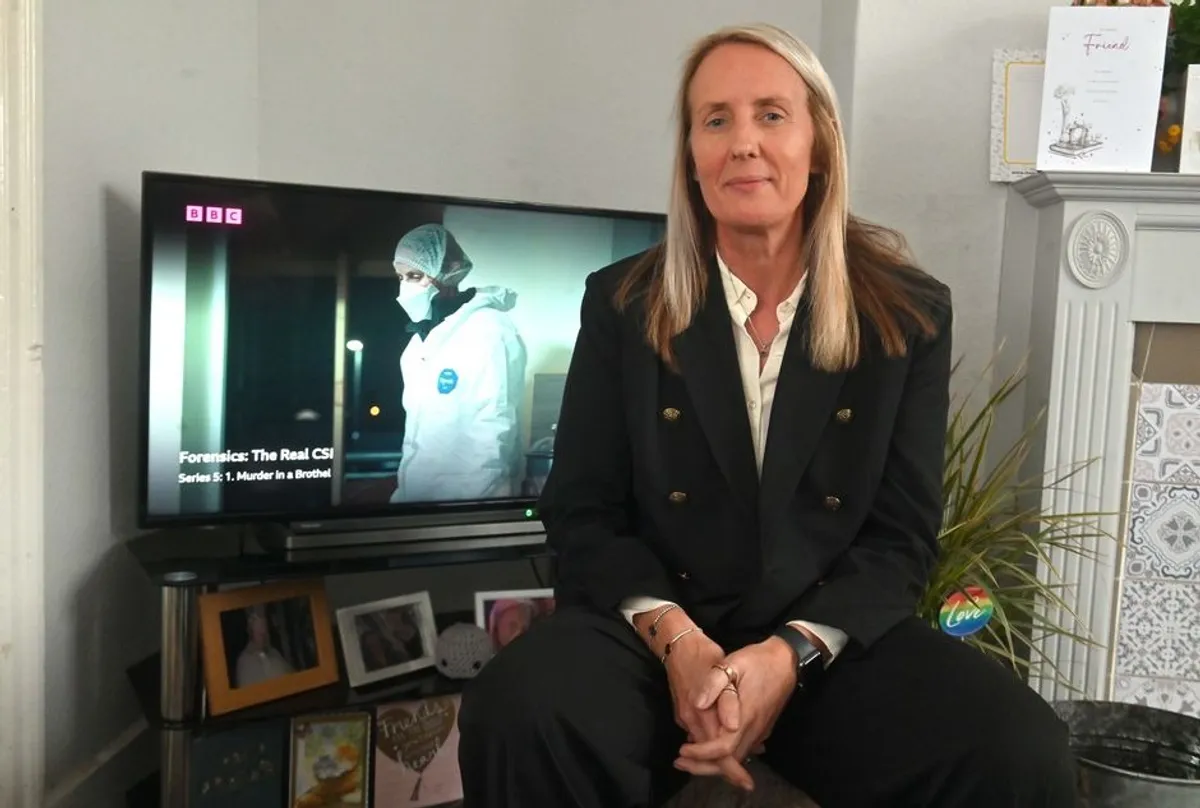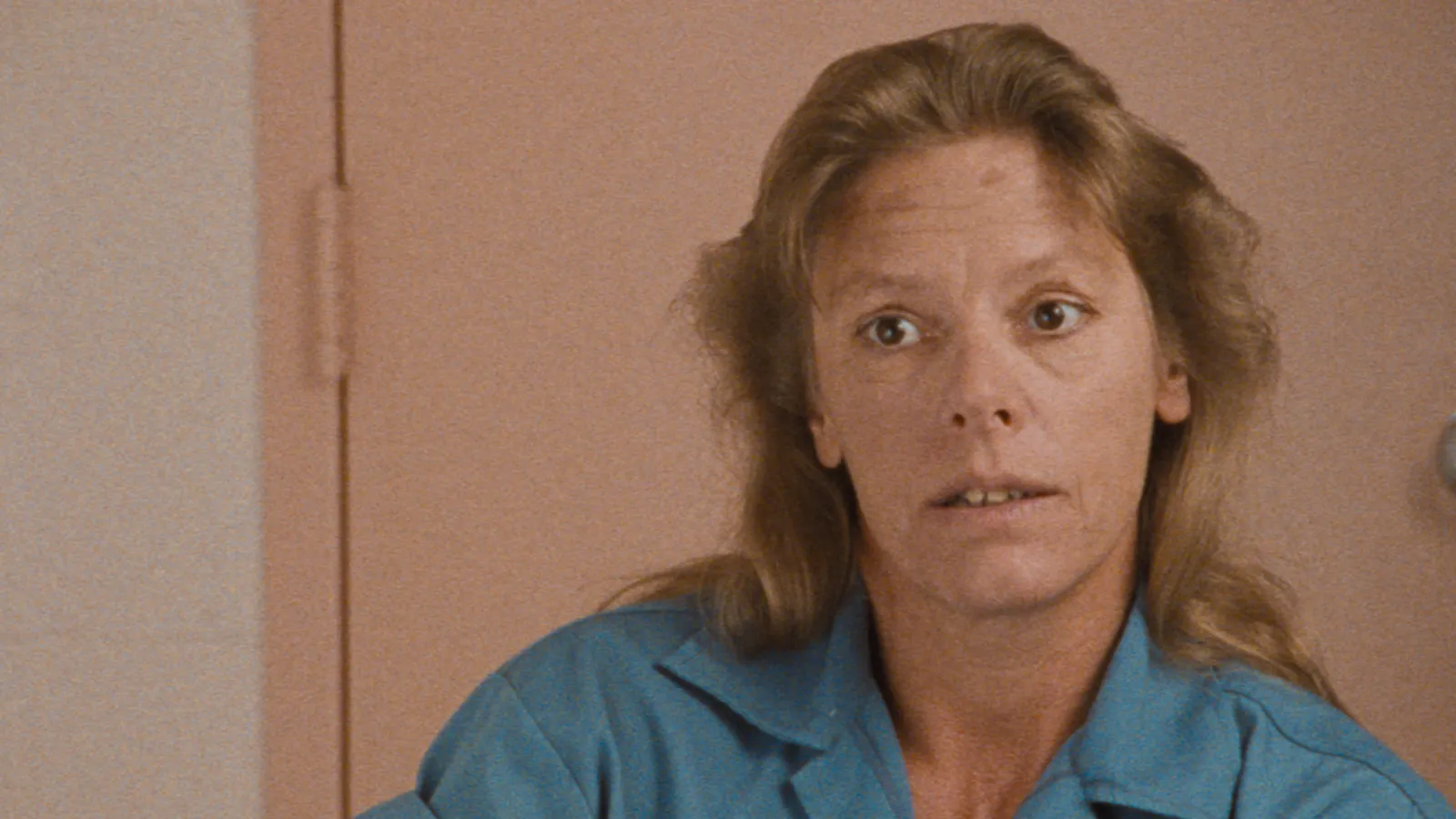Copyright expressandstar

They always say that the hardest, most impressive and commendable work is done behind the scenes, often by people whose admirable sense of duty never fails to lead them to consistently put others first, and themselves second at best. That has perhaps never been more true than in the case of a relatively new resident of our beautiful county, who firmly deserves the wider region’s thanks and applause. Joanne Ward has been in the police force for 28 years. Initially joining West Midlands Police as an inquiry officer, she now works as a crime scene co-ordinator, principally dealing with murders and suspicious deaths. Jo’s career has put her at the frontline, dealing with some of the region’s most horrific crimes, and has seen her as a regular on BBC documentary series ‘Forensics: The Real CSI’. Though now living in Shropshire, Jo continues to work for West Midlands Police, where her commitment to justice remains unflinching. She is happy, however, to enjoy more of a calming, rural environment when off duty. “I’ve been in the police now for nearly three decades, and in my current role, on a day-to-day basis, I tend to deal mainly with suspicious deaths and murders,” she said. “You’ve got to be a certain type of person – you’ve got to have a strong stomach and the ability to process the things you see in the right way mentally. “Now that I am living in Shropshire, it is nice to come home to somewhere that helps me relax.” In her role as a crime scene co-ordinator, Jo will be acutely involved in a murder investigation from the moment it opens until the sentencing of the perpetrator – being one of the first at a crime scene with the senior investigating officer (SIO), and also contributing to court proceedings. As Jo describes a typical day, the need for a strong resolve becomes all too apparent. “When a job comes in, the investigating officer gives you a call and then you arrange to go and meet them at the scene,” she said. “By the time we get to the scene it’s locked down. Police officers are there, and there are cordons in place, so there is obviously no public access. “Most of the time the deceased is left in situ for the crime scene co-ordinator and the SIO to go and have a walk through the scene. We get an update from the SIO about what we know about the deceased, what we know about the circumstances of the death, and if there are any suspects and if we have already got someone in custody. “Then it’s about forensically suiting up. Once we have our suit, shoes, gloves and mask on, we go into the actual scene itself and will then discuss exactly what we’re going to do. Most importantly, we decide if there is anything in the scene that needs prioritising that may give us a quick turnaround in identifying our offender if they’re unknown. “We’ll be looking for mobile devices, potential murder weapons – any intelligence that could lead us to an early arrest, because, as you can imagine, the first 24 hours can be crucial. “If you manage to get forensic evidence on a possible offender, you want to get that person in custody ASAP to have the best chance of securing additional forensic information that will help.” As an investigation continues, the pressure of time remains constant. “Whether it’s an outdoor scene or an indoor scene, investigations can take days – they can take weeks,” said Jo. “It all depends on the actual circumstances of the murder. “In the first few days of a murder investigation, you can be working anywhere between 12, 14 and 16-hour days. On a day-to-day basis, you’re constantly liaising with the SIO, having forensic strategy meetings, prioritising which exhibits need to be sent off, and ultimately providing the evidence needed to convict the perpetrator. “We work alongside the SIO until it gets to court and sometimes we have to give evidence as well – our work certainly doesn’t stop when the deceased has been moved from the scene.” To say that Jo works in a dark world is an understatement, yet her motivation to deliver justice for victims and their families has been a touchstone that has kept her strong throughout her career. “Members of the public don’t see us, but the hours and the effort that go into these murder investigations are all worthwhile when you get that end result,” she said. Understandably though, there have been cases that have affected Jo over the years, even leading to the onset of post-traumatic stress disorder. This is an experience that Jo discusses bravely and openly in her book, ‘Every Contact Leaves a Trace’. Published last year, Jo’s memoir discusses her time in the force and significant cases she has worked on, while also candidly reflecting on personal health issues, including PTSD and her battle with breast cancer. “Though I do a job that naturally means dealing with awful situations, the book talks about real-life things that can actually affect anyone,” she said. “When I had PTSD – I’d never, ever want to go back there. It was awful. “That was triggered by a significant scene – a domestic murder. It was a horrendous, horrendous scene. “Literally overnight, I completely changed. I would come home a blubbering wreck, and I had a panic attack, and all of this happened over this one scene. “But then, when I went to counselling and we covered was that I was also juggling so many balls with my son not sleeping at the time and me obviously dealing with other cases as well. My brain had just kind of had a bit of a shutdown and said, ‘No, I can’t take anymore’. “I got the help I needed, and in the book I talk about that and other things like my breast cancer diagnosis and my son dealing with ADHD. “It’s not just about the job itself you’re dealing with, but how if you've got anything going on in your own personal life, that adds to the pressure and the stress. “I think the reason the publishers offered to take the book on is because it was about a very personal journey. “It wasn’t just about forensic policing, it was about how a pressured personal and professional life fit together and how a positive attitude and seeking the right help are important in dealing with the cards you have been dealt.” Jo’s greatest hope is that her openness about issues that she has faced will help other people address similar problems. “The feedback that I’ve had so far is that the book might well help other people facing breast cancer, and who are struggling with some of the other issues I’ve experienced,” she added. “I talk about my work and how it has defined me. But being open about issues I’ve faced alongside it lets people know I’m a human being and someone who has experienced the same things as them. “If I can help anybody else, then the book has done its job.” With BBC’s Forensics: The Real CSI, Jo has used her wider platform to continue to be open about trials she has faced and overcome, particularly conscious that issues of mental health should always be given the spotlight they deserve. “I think we’re on about the fourth series now,” she said. “The first series was an absolute success, and I was very open because I am a very open person. “I spoke about my PTSD on one of the shows, and the amount of response I got from fellow police colleagues that I didn’t even know saying ‘thank you so much for being so open and talking about your PTSD’ was wonderful. Many years ago, when I had it, it wasn’t openly talked about, but it’s so much better now.” For Jo, to be a part of the changing conversation around mental wellbeing has been a fresh source of pride. She now considers it her responsibility and privilege to use her experiences to help others. “After the show I remember meeting a sergeant who was going through PTSD himself. It really helped him to talk through it, and he said that me talking openly about it on the show gave him hope. “Again, if I’m helping to do that, then I’ve done what’s important.” Now happily settled in Shropshire with her partner and her dogs, Jo’s own mental health is in a good place, and she remains one of West Midlands Police’s greatest assets. It behoves us all to salute her, and help her in her cause to make sure others can continue to do similar ‘behind the scenes’ work that matters in a way we hope most of us will never have to understand. Jo’s book, Every Contact Leaves a Trace, can be purchased on Amazon. Forensics: The Real CSI can be seen on BBC iPlayer.



